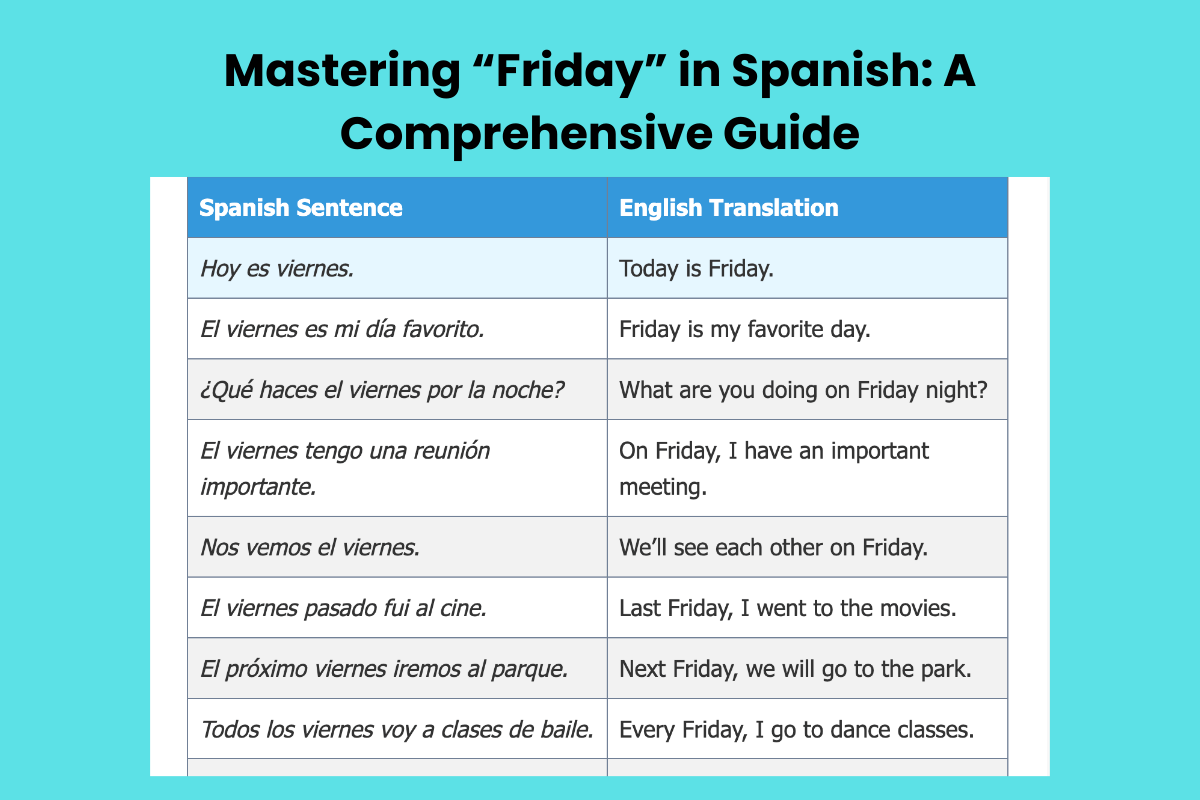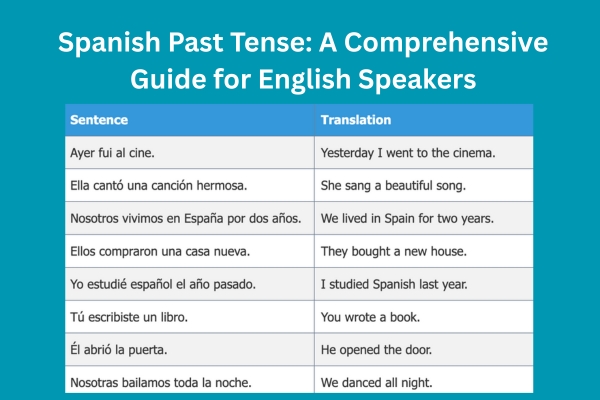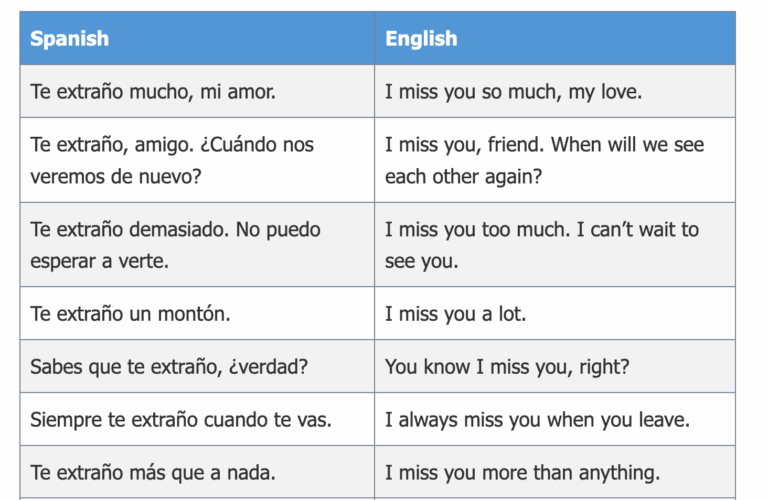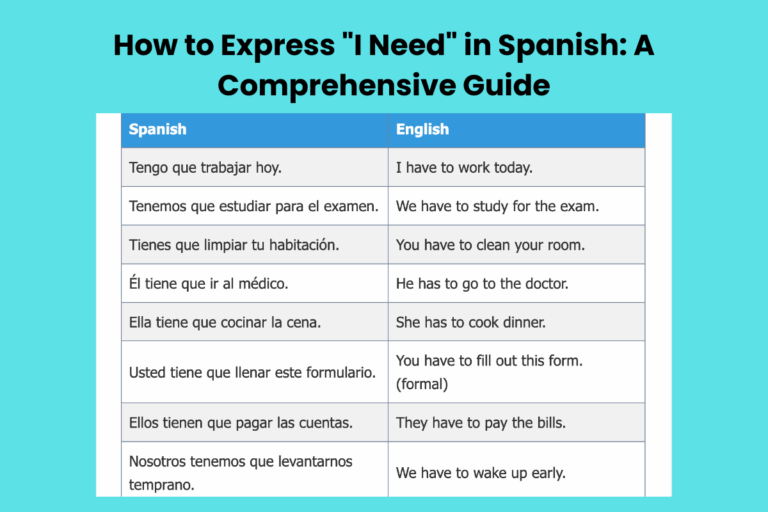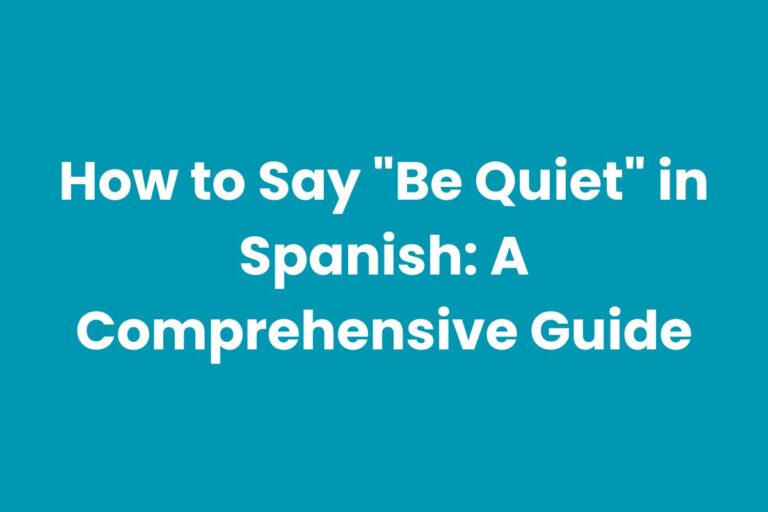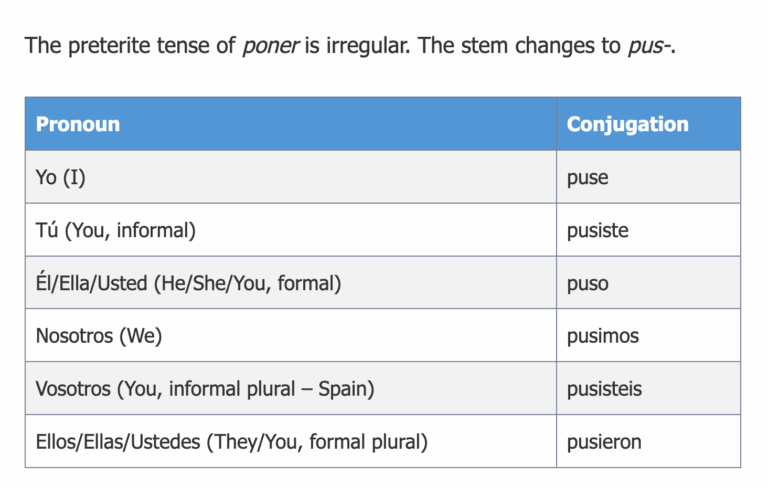Mastering “Friday” in Spanish: A Comprehensive Guide
Learning how to say the days of the week in Spanish is a fundamental step in mastering the language. Knowing how to say “Friday” (viernes) specifically is crucial for making plans, understanding schedules, and generally navigating daily life in a Spanish-speaking environment. This article provides a complete guide to “viernes,” covering its definition, grammatical usage, common mistakes, and practical examples. Whether you are a beginner or an advanced learner, this guide will equip you with the knowledge and confidence to use “viernes” correctly and naturally.
Table of Contents
- Introduction
- Definition of Viernes
- Structural Breakdown of Viernes
- Usage Contexts of Viernes
- Examples of Viernes in Sentences
- Grammar Rules for Using Viernes
- Common Mistakes When Using Viernes
- Practice Exercises
- Advanced Topics
- Frequently Asked Questions
- Conclusion
Definition of Viernes
Viernes is the Spanish word for “Friday.” It is a masculine noun and is part of the series of words used to denote the days of the week. In Spanish, the days of the week are typically not capitalized unless they begin a sentence or appear in a title. Understanding the definition of viernes also involves knowing its cultural context and how it fits into the broader Spanish calendar and lifestyle.
Classification
Viernes falls under the grammatical category of a noun, specifically a masculine noun. This means it can be preceded by articles like el (the) or un (a/an) when needed. Knowing its classification helps in understanding how it interacts with other words in a sentence.
Function
The primary function of viernes is to denote a specific day of the week, positioned between Thursday (jueves) and Saturday (sábado). It is used to indicate when events occur, make plans, or refer to past or future Fridays. The function is vital to everyday communication.
Contexts
Viernes is used in various contexts, including:
- Making appointments: “Tengo una cita el viernes.” (I have an appointment on Friday.)
- Describing routines: “Los viernes voy al gimnasio.” (On Fridays, I go to the gym.)
- Referring to past events: “El viernes pasado fui al cine.” (Last Friday, I went to the movies.)
- Planning future activities: “El próximo viernes iremos a la playa.” (Next Friday, we will go to the beach.)
These contexts demonstrate the versatility and importance of understanding and using
in Spanish.
Structural Breakdown of Viernes
The word viernes is relatively straightforward in its structure. It does not have prefixes or suffixes that drastically change its meaning. Its structure is simple, making it easy to remember and use. However, understanding its grammatical context is essential for proper usage.
Gender and Number
Viernes is a masculine noun. When referring to multiple Fridays, the plural form is also viernes. This is because words ending in “-es” do not change in the plural form when referring to days of the week. This is a common characteristic among the days of the week in Spanish. For example, “los viernes” means “Fridays.”
Articles and Prepositions
When using viernes, you will often need to use articles (el, un) or prepositions (en, a). The article el is used to specify a particular Friday, while un is used to refer to a Friday in general. The preposition en can be used to indicate “on” a specific Friday. “A” is not typically used before viernes like it is in english.
Usage Contexts of Viernes
Viernes is used in various contexts, from making plans to discussing routines. Understanding these contexts will help you use the word correctly and naturally.
Making Plans
When making plans, you can use viernes to specify the day of the week. For example, “Nos vemos el viernes.” (We’ll see each other on Friday.) or “¿Qué vas a hacer el viernes?” (What are you going to do on Friday?). These examples demonstrate how to use viernes to coordinate activities.
Describing Routines
To describe routines that occur on Fridays, use the plural form “los viernes.” For example, “Los viernes trabajo hasta tarde.” (On Fridays, I work late.) or “Los viernes salgo con mis amigos.” (On Fridays, I go out with my friends.). This usage is crucial for discussing regular activities.
Referring to Past Events
When referring to a past Friday, you can use phrases like “el viernes pasado” (last Friday). For example, “El viernes pasado fui a una fiesta.” (Last Friday, I went to a party.) or “El viernes pasado tuvimos una reunión.” (Last Friday, we had a meeting.). These phrases help to specify when an event occurred.
Planning Future Activities
To plan future activities, use phrases like “el próximo viernes” (next Friday) or “este viernes” (this Friday). For example, “El próximo viernes vamos a cenar fuera.” (Next Friday, we are going to have dinner out.) or “Este viernes tengo mucho trabajo.” (This Friday, I have a lot of work.). These phrases are essential for scheduling future events.
Examples of Viernes in Sentences
Here are several examples of how to use viernes in different contexts. These examples are organized into tables to provide clarity and context.
Table 1: General Usage of Viernes
This table illustrates how viernes is used in everyday conversation to refer to the day of the week.
| Spanish Sentence | English Translation |
|---|---|
| Hoy es viernes. | Today is Friday. |
| El viernes es mi día favorito. | Friday is my favorite day. |
| ¿Qué haces el viernes por la noche? | What are you doing on Friday night? |
| El viernes tengo una reunión importante. | On Friday, I have an important meeting. |
| Nos vemos el viernes. | We’ll see each other on Friday. |
| El viernes pasado fui al cine. | Last Friday, I went to the movies. |
| El próximo viernes iremos al parque. | Next Friday, we will go to the park. |
| Todos los viernes voy a clases de baile. | Every Friday, I go to dance classes. |
| Este viernes no puedo salir. | This Friday, I can’t go out. |
| ¿Tienes planes para el viernes? | Do you have plans for Friday? |
| El viernes es el último día de la semana laboral. | Friday is the last day of the work week. |
| Empiezo mis vacaciones el viernes. | I start my vacation on Friday. |
| El viernes celebramos tu cumpleaños. | We celebrate your birthday on Friday. |
| Necesito terminar este proyecto para el viernes. | I need to finish this project by Friday. |
| El viernes hay un concierto en la plaza. | There is a concert in the square on Friday. |
| ¿Podemos posponer la reunión para el viernes? | Can we postpone the meeting until Friday? |
| El viernes es un buen día para relajarse. | Friday is a good day to relax. |
| El viernes voy a visitar a mis padres. | On Friday, I am going to visit my parents. |
| El viernes por la mañana tengo que ir al médico. | On Friday morning, I have to go to the doctor. |
| El viernes es el día de la semana que más me gusta. | Friday is the day of the week that I like the most. |
| El viernes es sinónimo de fin de semana. | Friday is synonymous with the weekend. |
| El viernes pasado llovió todo el día. | Last Friday, it rained all day. |
| Este viernes voy a ir al teatro. | This Friday, I am going to go to the theater. |
Table 2: Viernes in Routine Descriptions
This table focuses on using viernes in the plural form (los viernes) to describe routines or habitual actions.
| Spanish Sentence | English Translation |
|---|---|
| Los viernes voy al gimnasio. | On Fridays, I go to the gym. |
| Los viernes salgo con mis amigos. | On Fridays, I go out with my friends. |
| Los viernes trabajo hasta tarde. | On Fridays, I work late. |
| Los viernes tenemos una reunión de equipo. | On Fridays, we have a team meeting. |
| Los viernes como pizza. | On Fridays, I eat pizza. |
| Los viernes veo una película. | On Fridays, I watch a movie. |
| Los viernes visito a mi abuela. | On Fridays, I visit my grandmother. |
| Los viernes estudio español. | On Fridays, I study Spanish. |
| Los viernes juego al fútbol. | On Fridays, I play soccer. |
| Los viernes leo un libro. | On Fridays, I read a book. |
| Los viernes cocino algo especial. | On Fridays, I cook something special. |
| Los viernes escucho música. | On Fridays, I listen to music. |
| Los viernes hago yoga. | On Fridays, I do yoga. |
| Los viernes escribo en mi diario. | On Fridays, I write in my journal. |
| Los viernes aprendo algo nuevo. | On Fridays, I learn something new. |
| Los viernes camino por el parque. | On Fridays, I walk in the park. |
| Los viernes tomo un café con mi hermana. | On Fridays, I have coffee with my sister. |
| Los viernes veo un partido de baloncesto. | On Fridays, I watch a basketball game. |
| Los viernes hago jardinería. | On Fridays, I do gardening. |
| Los viernes voy a un concierto. | On Fridays, I go to a concert. |
| Los viernes ayudo en un refugio de animales. | On Fridays, I volunteer at an animal shelter. |
| Los viernes participo en un club de lectura. | On Fridays, I participate in a book club. |
| Los viernes asisto a clases de arte. | On Fridays, I attend art classes. |
Table 3: Using Viernes with Time Expressions
This table demonstrates how to use viernes with different time expressions such as “next,” “last,” and “this.”
| Spanish Sentence | English Translation |
|---|---|
| El próximo viernes tengo una cita. | Next Friday, I have an appointment. |
| El viernes pasado fui a una fiesta. | Last Friday, I went to a party. |
| Este viernes voy al cine. | This Friday, I am going to the movies. |
| El viernes que viene vamos a viajar. | Next Friday, we are going to travel. |
| El viernes anterior estuve muy ocupado. | The previous Friday, I was very busy. |
| El viernes por la mañana iré al mercado. | Friday morning, I will go to the market. |
| El viernes por la tarde tengo libre. | Friday afternoon, I am free. |
| El viernes por la noche cenaremos fuera. | Friday night, we will have dinner out. |
| El viernes a primera hora tengo una reunión. | First thing on Friday, I have a meeting. |
| El viernes al mediodía almorzaremos juntos. | Friday at noon, we will have lunch together. |
| El viernes a última hora terminaré el trabajo. | Late on Friday, I will finish the work. |
| El viernes alrededor de las seis nos encontraremos. | Around six o’clock on Friday, we will meet. |
| El viernes antes del fin de semana descansaré. | On Friday before the weekend, I will rest. |
| El viernes después del trabajo iré a casa. | On Friday after work, I will go home. |
| El viernes, si hace buen tiempo, iremos a la playa. | On Friday, if the weather is good, we will go to the beach. |
| El viernes, a pesar de todo, seguiré trabajando. | On Friday, despite everything, I will continue working. |
| El viernes, en lugar de ir al cine, iremos al teatro. | On Friday, instead of going to the cinema, we will go to the theater. |
| El viernes, en caso de que llueva, nos quedaremos en casa. | On Friday, in case it rains, we will stay at home. |
| El viernes, sin falta, te llamaré. | On Friday, without fail, I will call you. |
| El viernes, con suerte, terminaré el proyecto. | On Friday, with luck, I will finish the project. |
Table 4: Viernes in Questions
This table demonstrates how to use viernes in questions to inquire about plans or activities.
| Spanish Question | English Translation |
|---|---|
| ¿Qué vas a hacer el viernes? | What are you going to do on Friday? |
| ¿Tienes planes para el viernes? | Do you have plans for Friday? |
| ¿Trabajas el viernes? | Do you work on Friday? |
| ¿Podemos vernos el viernes? | Can we meet on Friday? |
| ¿Sales el viernes por la noche? | Are you going out on Friday night? |
| ¿Qué hiciste el viernes pasado? | What did you do last Friday? |
| ¿A qué hora sales del trabajo el viernes? | What time do you leave work on Friday? |
| ¿Vas a ir al concierto el viernes? | Are you going to go to the concert on Friday? |
| ¿Estás libre el viernes por la tarde? | Are you free on Friday afternoon? |
| ¿Vendrás a la fiesta el viernes? | Will you come to the party on Friday? |
| ¿Qué película quieres ver el viernes? | What movie do you want to see on Friday? |
| ¿Dónde quieres cenar el viernes? | Where do you want to have dinner on Friday? |
| ¿A qué hora empieza la reunión el viernes? | What time does the meeting start on Friday? |
| ¿Quién va a venir el viernes? | Who is going to come on Friday? |
| ¿Por qué no podemos ir el viernes? | Why can’t we go on Friday? |
| ¿Cómo vas a celebrar el viernes? | How are you going to celebrate Friday? |
| ¿Cuándo vas a comprar los boletos para el viernes? | When are you going to buy the tickets for Friday? |
| ¿Cuál es tu plan para el viernes? | What is your plan for Friday? |
| ¿Sabes si hay un evento especial el viernes? | Do you know if there is a special event on Friday? |
| ¿Me puedes ayudar el viernes? | Can you help me on Friday? |
Grammar Rules for Using Viernes
Understanding the grammar rules for using viernes is essential for accurate and natural communication. Here are some key rules to keep in mind:
Gender Agreement
As a masculine noun, viernes requires masculine articles and adjectives. For example, “el viernes bueno” (the good Friday) is grammatically correct, while “la viernes buena” is incorrect.
Pluralization
The plural form of viernes is also viernes when referring to multiple Fridays in a general sense. You will typically use the article “los” to indicate the plural: “los viernes” (Fridays).
Preposition Usage
The preposition “en” is often used with viernes to indicate “on Friday.” For example, “en viernes” is acceptable, but “el viernes” is more common. The use of “a” is typically incorrect.
Capitalization
In Spanish, the days of the week are not capitalized unless they begin a sentence or appear in a title. For example, “El viernes voy a la playa.” (On Friday, I am going to the beach.) is correct, but “el Viernes voy a la playa” is incorrect unless it’s a title.
Common Mistakes When Using Viernes
Even experienced learners can make mistakes when using viernes. Here are some common errors and how to avoid them.
Incorrect Gender Agreement
Incorrect: La viernes.
Correct: El viernes.
Explanation: Viernes is a masculine noun and requires the masculine article el.
Incorrect Pluralization
Incorrect: Los vierness.
Correct: Los viernes.
Explanation: The plural form of viernes remains viernes when referring to days of the week.
Incorrect Capitalization
Incorrect: el Viernes.
Correct: el viernes.
Explanation: Days of the week are not capitalized in Spanish unless they begin a sentence or are part of a title.
Incorrect Preposition Usage
Incorrect: A viernes.
Correct: El viernes.
Explanation: The preposition “a” is not typically used with viernes. “El” is more common.
Practice Exercises
Test your knowledge with these practice exercises. Each exercise focuses on a different aspect of using viernes.
Exercise 1: Fill in the Blanks
Complete the following sentences with the correct form of viernes.
| Question | Answer |
|---|---|
| 1. ___ es el último día de la semana laboral. | El viernes |
| 2. ___ voy al gimnasio. | Los viernes |
| 3. ___ pasado fui a una fiesta. | El viernes |
| 4. ¿Qué vas a hacer el ___? | viernes |
| 5. ___ que viene vamos a viajar. | El viernes |
| 6. Todos ___ voy a clases de baile. | los viernes |
| 7. Este ___ no puedo salir. | viernes |
| 8. ¿Tienes planes para el ___? | viernes |
| 9. Empiezo mis vacaciones el ___. | viernes |
| 10. El ___ celebramos tu cumpleaños. | viernes |
Exercise 2: Translate the Sentences
Translate the following English sentences into Spanish using viernes.
| English Question | Spanish Answer |
|---|---|
| 1. Today is Friday. | Hoy es viernes. |
| 2. On Fridays, I eat pizza. | Los viernes como pizza. |
| 3. Last Friday, I went to the movies. | El viernes pasado fui al cine. |
| 4. What are you doing on Friday night? | ¿Qué haces el viernes por la noche? |
| 5. Next Friday, we are going to travel. | El próximo viernes vamos a viajar. |
| 6. Every Friday, I go to dance classes. | Todos los viernes voy a clases de baile. |
| 7. This Friday, I can’t go out. | Este viernes no puedo salir. |
| 8. Do you have plans for Friday? | ¿Tienes planes para el viernes? |
| 9. I start my vacation on Friday. | Empiezo mis vacaciones el viernes. |
| 10. We celebrate your birthday on Friday. | El viernes celebramos tu cumpleaños. |
Exercise 3: Correct the Mistakes
Identify and correct the mistakes in the following sentences.
| Incorrect Sentence | Correct Sentence |
|---|---|
| 1. La viernes voy al cine. | El viernes voy al cine. |
| 2. Los vierness como pizza. | Los viernes como pizza. |
| 3. El Viernes pasado fui a una fiesta. | El viernes pasado fui a una fiesta. |
| 4. ¿Qué haces a viernes por la noche? | ¿Qué haces el viernes por la noche? |
| 5. El proximo viernes vamos a viajar. | El próximo viernes vamos a viajar. |
| 6. Todos los vierness voy a clases de baile. | Todos los viernes voy a clases de baile. |
| 7. Este Viernes no puedo salir. | Este viernes no puedo salir. |
| 8. ¿Tienes planes para a viernes? | ¿Tienes planes para el viernes? |
| 9. Empiezo mis vacaciones a viernes. | Empiezo mis vacaciones el viernes. |
| 10. El Viernes celebramos tu cumpleaños. | El viernes celebramos tu cumpleaños. |
Advanced Topics
For advanced learners, here are some more complex aspects of using viernes.
Idiomatic Expressions
There are some idiomatic expressions in Spanish that include the word viernes. For example, “Viernes de Dolores” refers to the Friday before Palm Sunday in the Catholic tradition. Understanding these expressions can add depth to your language skills.
Regional Variations
While the word viernes is universally used in Spanish-speaking countries, there may be slight regional variations in how it is used in certain phrases or expressions. Being aware of these variations can help you better understand and communicate with people from different regions.
Frequently Asked Questions
Here are some frequently asked questions about using viernes in Spanish.
- Is viernes masculine or feminine?
Viernes is a masculine noun. Therefore, it should be used with masculine articles and adjectives.
- Do I capitalize viernes in a sentence?
No, you do not capitalize viernes unless it begins a sentence or is part of a title.
- What is the plural form of viernes?
The plural form of viernes is also viernes when referring to days of the week. Use “los viernes” to indicate Fridays.
- How do I say “last Friday” in Spanish?
You say “last Friday” in Spanish as “el viernes pasado.”
- How do I say “next Friday” in Spanish?
You say “next Friday” in Spanish as “el próximo viernes” or “el viernes que viene.”
- Can I use the preposition “a” with viernes?
While technically possible in some contexts, it is more common and natural to use “el” before viernes. Avoid using “a” directly before viernes in most cases.
- How do I describe a routine that happens on Fridays?
Use the plural form “los viernes” to describe routines. For example, “Los viernes voy al gimnasio.” (On Fridays, I go to the gym.)
- Is it correct to say “en viernes”?
Yes, it is grammatically correct, but using “el viernes” is more common and natural in everyday conversation.
- What are some common phrases with the word “viernes”?
Some common phrases include “el viernes pasado” (last Friday), “el próximo viernes” (next Friday), “este viernes” (this Friday), and “los viernes” (on Fridays).
- Are there any regional variations in the use of “viernes”?
While the word “viernes” is universally used, some regional variations might exist in specific idiomatic expressions or colloquial phrases. However, the basic usage remains consistent across Spanish-speaking regions.
Conclusion
Mastering the usage of viernes is a crucial step in learning Spanish. This comprehensive guide has covered the definition, structural breakdown, usage contexts, grammar rules, common mistakes, and practice exercises related to viernes. By understanding these aspects, you can confidently and accurately use viernes in your Spanish conversations and writing. Remember to practice regularly and pay attention to the context in which you are using the word.
Continue to expand your vocabulary and grammar knowledge to further enhance your language skills. With consistent effort and practice, you will become proficient in using viernes and other Spanish vocabulary in no time. Keep practicing, and you’ll be fluent before you know it!

